

— Blogs —
—Products—
 Consumer hotline +8618073152920
Consumer hotline +8618073152920 WhatsApp:+8615367865107
Address:Room 102, District D, Houhu Industrial Park, Yuelu District, Changsha City, Hunan Province, China
Product knowledge
Time:2024-07-28 15:44:10 Popularity:972
Introduction to Soil Sensors
A soil sensor is a device capable of measuring various parameters of the soil, including temperature, humidity, pH, nutrient content (e.g., nitrogen, phosphorus, potassium), and conductivity. It converts physical, chemical and biological information in the soil into electrical or digital signals for further processing and parsing through specific sensing elements. Soil sensors are indispensable intelligent tools in modern agriculture, horticulture, environmental monitoring and other fields, providing important support for precision planting, soil health management and environmental protection.
 |  | 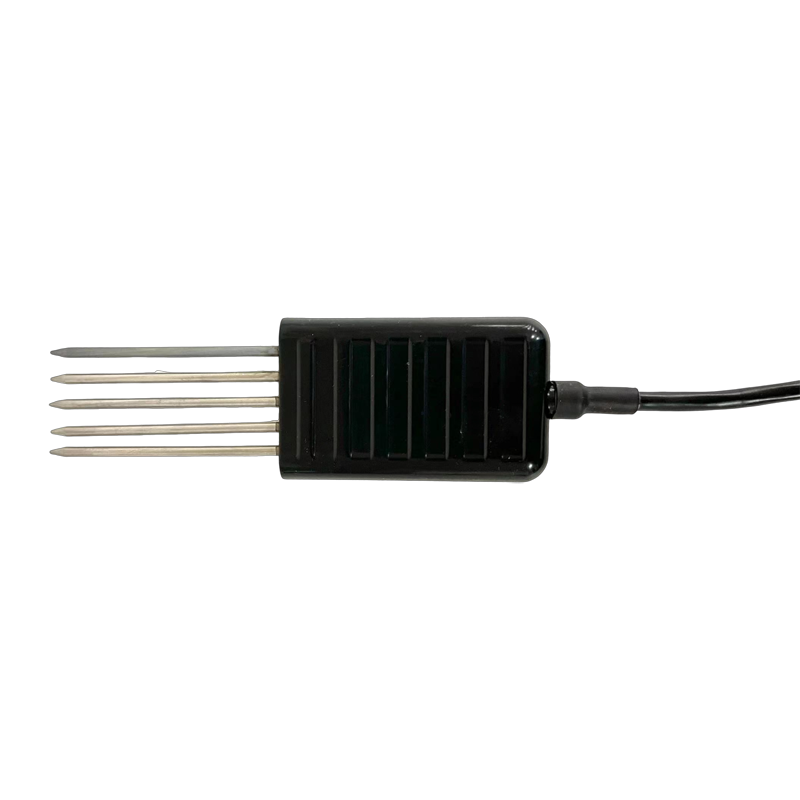 | 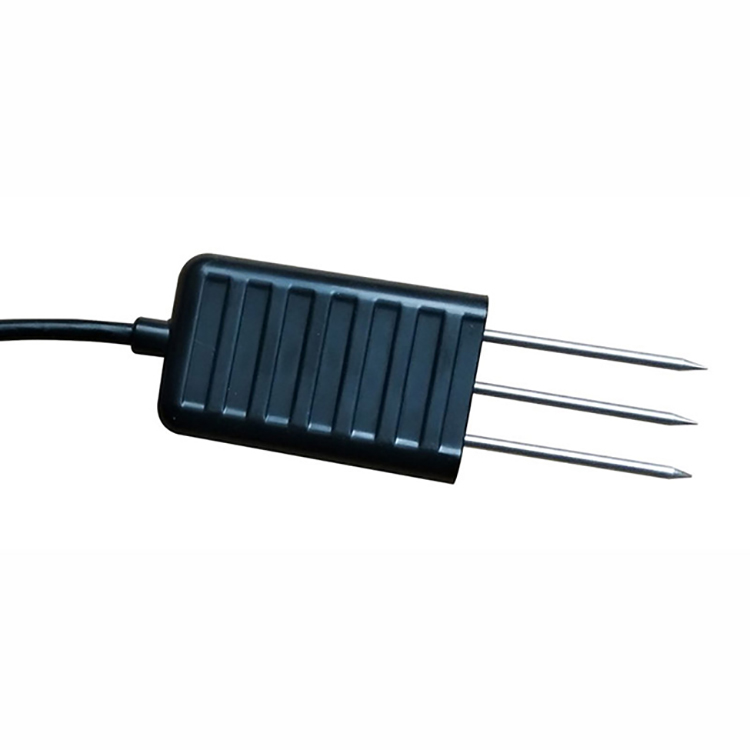 |
| Soil NPK Sensor | Soil Moisture Temperature sensor | 7 in 1 Soil Integrated Sensor | 3-in-1 Soil Temperature Humidity EC Sensor |
 |  |  | 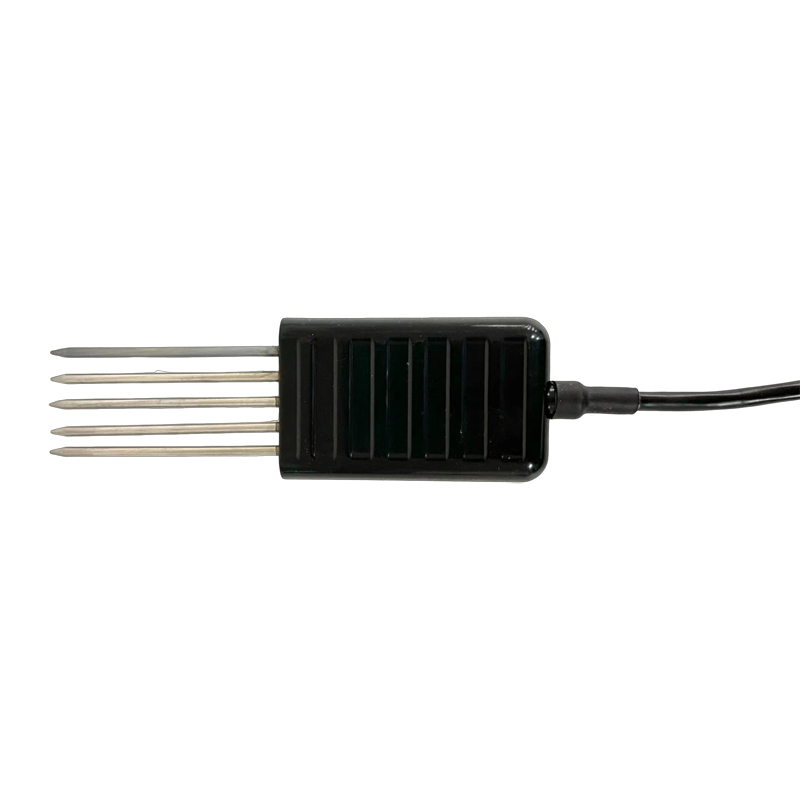 |
| Soil pH sensor | Soil EC Sensor | 4-in-1 Soil Temperature Moisture EC Salt Sensor | 8 in 1 Integrated Soil Sensor RS485 |
1. Soil Moisture Sensor: used to measure the moisture content in the soil, essential for irrigation management and crop growth monitoring.
2. soil temperature sensors: monitor changes in soil temperature that affect seed germination and plant growth.
3. Soil pH Sensor: Measures the acidity and alkalinity of the soil, which guides crop cultivation and soil improvement.
4. Soil conductivity sensor: detects the salt and mineral content in the soil, reflecting soil fertility.
5. Soil NPK sensor: specially used to measure the nitrogen, phosphorus and potassium content in the soil, which plays an important role in fertiliser management.
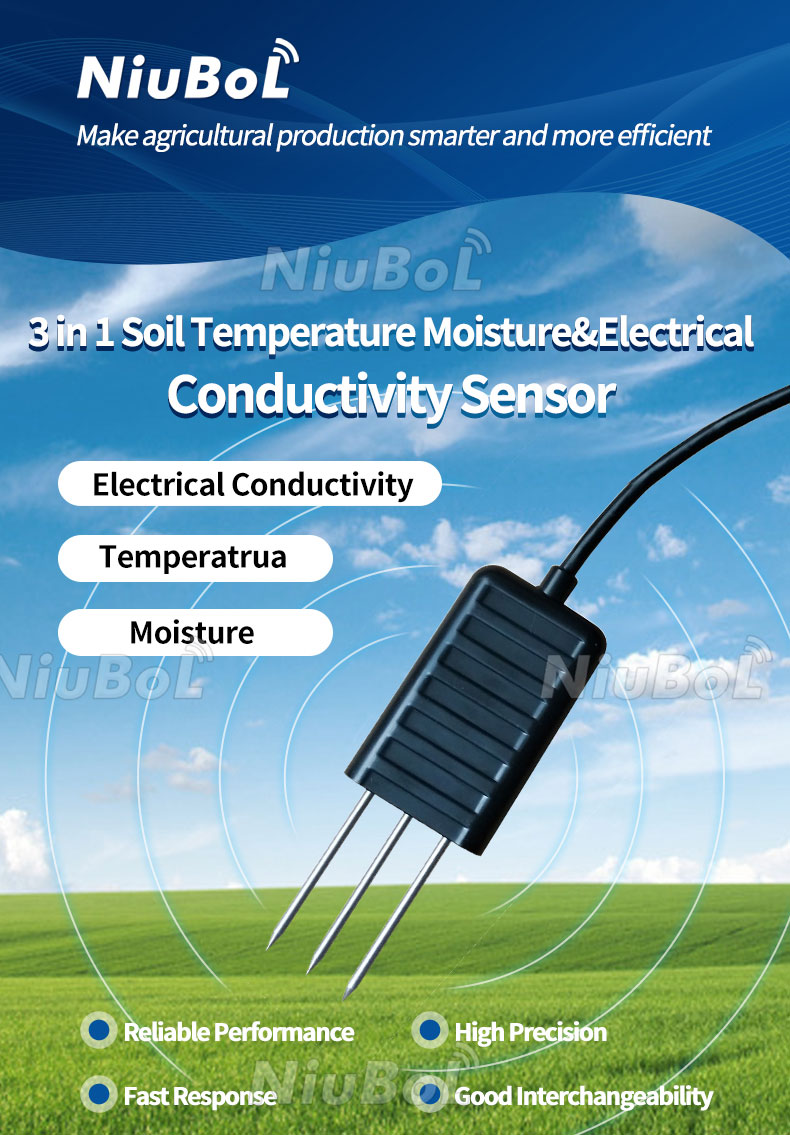
Soil sensors have a wide range of uses in many fields, mainly including the following aspects:
1.Precision agriculture management:
Monitoring soil moisture: soil moisture sensors can monitor the moisture content in the soil in real time to help farmers develop a scientific irrigation plan. When the soil moisture is below a certain threshold, the system will automatically remind or turn on the irrigation equipment to replenish water, avoiding crop damage due to lack of water; when the soil moisture is higher than a certain threshold, the irrigation equipment will be automatically turned off, preventing wastage and soil problems caused by over-irrigation.
Monitoring soil nutrients: Nitrogen, phosphorus and potassium sensors and other sensors can monitor the nutrient content in the soil in real time, providing a basis for precise fertiliser application. By understanding the soil fertility status, farmers can formulate a reasonable fertiliser plan to avoid the negative impact of over-fertilisation on the soil and the environment, and at the same time improve the utilisation rate of fertilisers and the growth quality of crops.
Monitoring soil pH: Soil pH sensors are used to detect the acidity and alkalinity of the soil, which is important for regulating the soil environment and improving crop yield and quality. By adjusting the pH value of the soil, it can improve the physical and chemical properties of the soil and promote the absorption and utilisation of nutrients by crops.
2. Environmental monitoring and protection:
Soil sensors also play an important role in the field of environmental monitoring. For example, soil conductivity sensors can measure the total salt (conductivity) of the soil to help assess soil salinity conditions and provide data support for the rational use of water resources and the prevention of soil pollution.
In grasslands, forests and other ecosystems, soil sensors can be used to monitor soil health and biological activities, providing a scientific basis for ecological protection and restoration.
3.Scientific research and education:
3.1 Soil sensors also have important application value in agricultural scientific research. By monitoring changes in soil parameters in real time, researchers can more accurately understand the adaptability of different crops to the soil environment and the mechanism of the impact of management measures such as fertilisation and irrigation on the soil environment.
3.2 In the field of education, soil sensors can be used as a teaching tool to help students intuitively understand the structure and properties of soil and the relationship between plant growth and environmental factors.
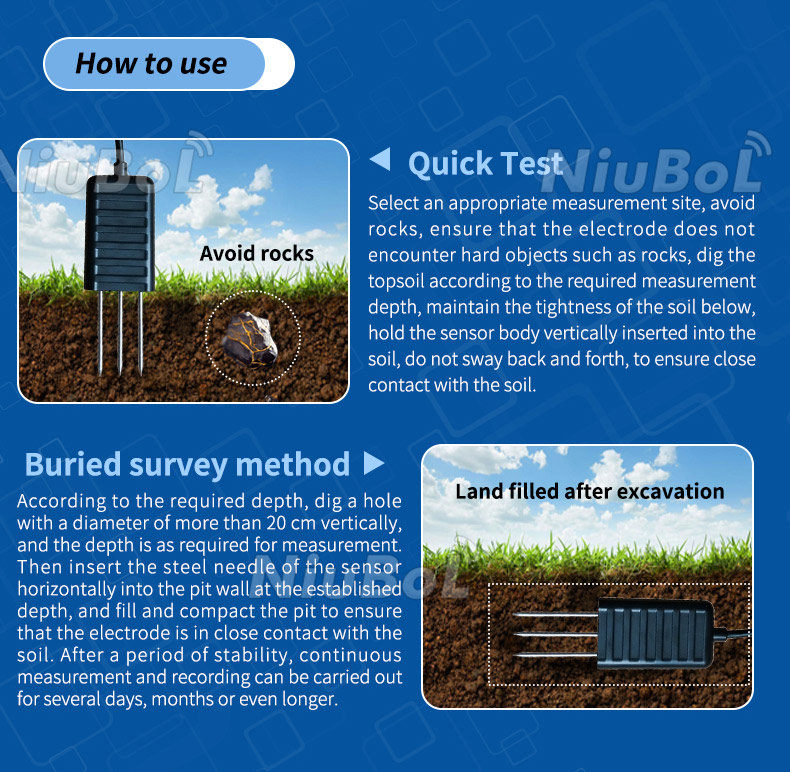
4. garden management: in gardening and landscaping, soil sensors help maintainers monitor soil conditions to ensure healthy plant growth.
5. Intelligent irrigation systems: Soil moisture sensors are linked with irrigation systems to achieve automatic irrigation, saving water and reducing energy consumption.
The soil moisture sensor can monitor the water content in the soil in real time, helping farmers to develop a scientific irrigation plan. When the soil moisture is lower than a certain threshold, the system will automatically turn on the irrigation equipment to replenish water; when the soil moisture is higher than a certain threshold, it will automatically turn off the irrigation equipment, thus avoiding waste and soil problems caused by over-irrigation.
6. Pest control: soil sensors can also monitor biological activities in the soil and detect signs of pests and diseases in a timely manner. By analysing the monitoring data, farmers can take control measures in advance to reduce the impact of pests and diseases on crops.
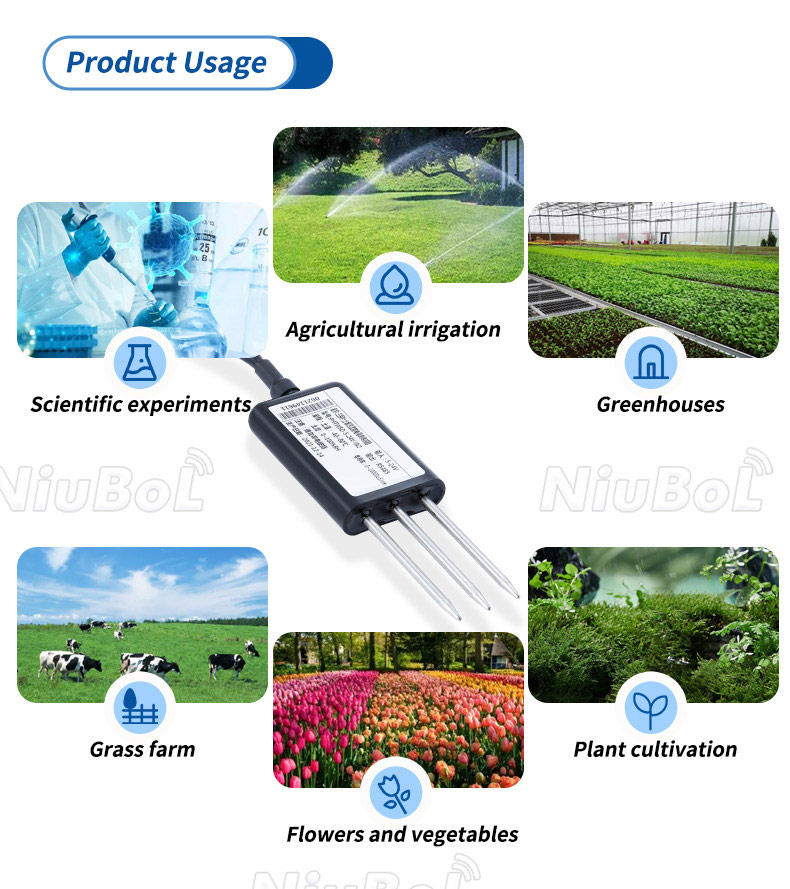
Summary:
Soil sensors are important tools for monitoring and managing the soil environment; they provide real-time data on soil moisture, temperature, pH, conductivity, and nutrient content. Soil sensors provide strong support for precision agriculture management, environmental monitoring and protection, and scientific research and education. These data have a wide range of applications in the fields of precision agriculture, environmental protection, and garden management, and play an important role in improving crop yields, protecting the ecological environment, and promoting sustainable development.
Related recommendations
Sensors & Weather Stations Catalog
Agriculture Sensors and Weather Stations Catalog-NiuBoL.pdf
Weather Stations Catalog-NiuBoL.pdf
Related products
 Combined air temperature and relative humidity sensor
Combined air temperature and relative humidity sensor Soil Moisture Temperature sensor for irrigation
Soil Moisture Temperature sensor for irrigation Soil pH sensor RS485 soil Testing instrument soil ph meter for agriculture
Soil pH sensor RS485 soil Testing instrument soil ph meter for agriculture Wind Speed sensor Output Modbus/RS485/Analog/0-5V/4-20mA
Wind Speed sensor Output Modbus/RS485/Analog/0-5V/4-20mA Tipping bucket rain gauge for weather monitoring auto rainfall sensor RS485/Outdoor/stainless steel
Tipping bucket rain gauge for weather monitoring auto rainfall sensor RS485/Outdoor/stainless steel Pyranometer Solar Radiation Sensor 4-20mA/RS485
Pyranometer Solar Radiation Sensor 4-20mA/RS485
Screenshot, WhatsApp to identify the QR code
WhatsApp number:+8615367865107
(Click on WhatsApp to copy and add friends)
